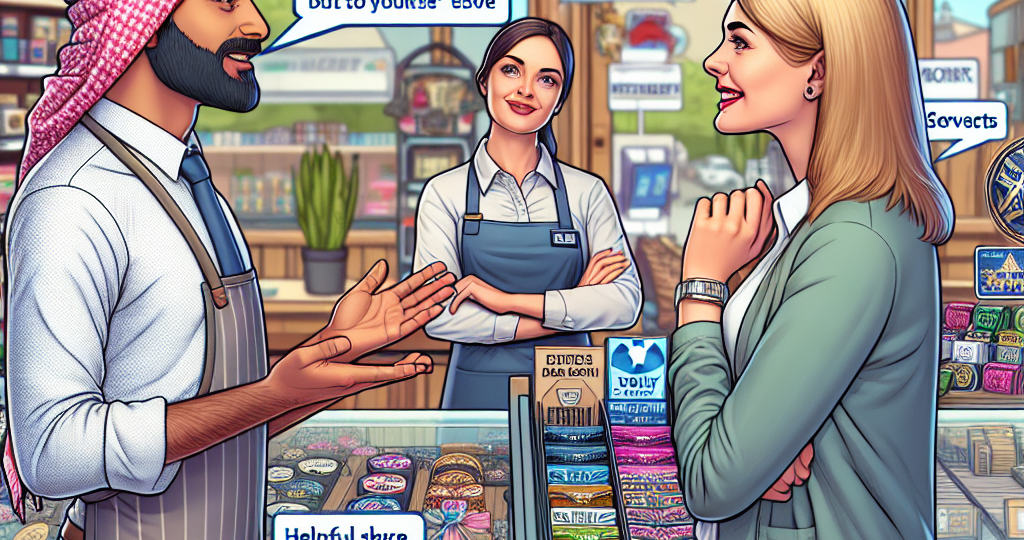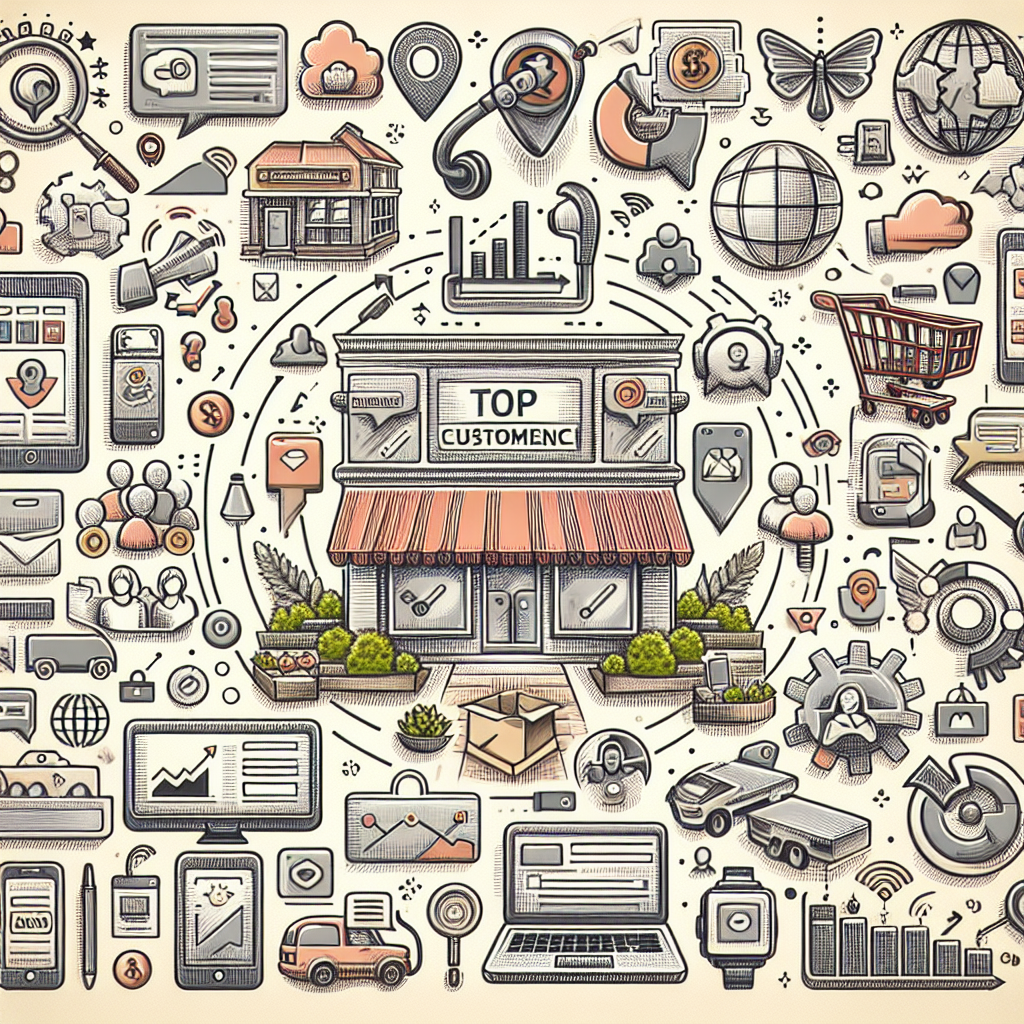Customer Service Techniques for Enhancing Customer Loyalty
September 12, 2024 | by Eve Cooper

Customer service techniques play a crucial role in ensuring customer loyalty and satisfaction. In today’s competitive market, businesses must go above and beyond to meet and exceed customer expectations. Excellent customer service not only builds trust but also fosters strong relationships with customers, ultimately leading to increased loyalty and repeat business. From personalized interactions to efficient problem-solving, a company’s customer service approach can make or break its reputation. This guide will delve into various techniques that businesses can utilize to enhance customer loyalty and retention, solidifying their position in the market and standing out from the competition.
Understanding the Importance of Customer Loyalty

In the competitive landscape of business, customer loyalty stands out as a crucial element that can significantly impact the success and sustainability of a company. It goes beyond merely having repeat customers and delves into the realm of creating strong emotional connections and trust between the brand and its clientele. Here are some key aspects to consider when understanding the importance of customer loyalty:
-
Defining customer loyalty in the context of business: Customer loyalty can be defined as the willingness of a customer to continue purchasing products or services from a specific brand or company over an extended period. It involves a deep-seated commitment and preference for a particular brand, often leading to advocacy and positive word-of-mouth.
-
Exploring the significance of customer loyalty for a company’s success: Customer loyalty plays a pivotal role in driving various aspects of a company’s success. It not only contributes to revenue generation through repeat purchases but also serves as a foundation for long-term growth and sustainability. Loyal customers are more likely to overlook occasional mishaps or price fluctuations, showcasing a higher tolerance level and brand resilience. Additionally, loyal customers can become brand ambassadors, actively promoting the company to their networks and attracting new business through referrals.
By understanding the nuances of customer loyalty and its impact on business outcomes, companies can tailor their customer service strategies to foster stronger relationships, build trust, and ultimately enhance customer loyalty.
Building a Customer-Centric Culture
In order to establish a customer-centric culture within an organization, it is crucial to focus on training employees effectively and implementing strategies that prioritize customer satisfaction. This approach ensures that every interaction with customers is positive, thereby enhancing customer loyalty.
- Training Employees to Prioritize Customer Satisfaction
- Providing comprehensive training programs to employees on the importance of customer satisfaction
- Emphasizing the value of empathetic communication and active listening skills
- Encouraging staff to go above and beyond to meet customer needs and exceed expectations
-
Implementing regular refresher courses and workshops to reinforce customer-centric values
-
Implementing Strategies to Ensure Every Customer Interaction is Positive
- Establishing clear customer service policies and protocols for consistent service delivery
- Empowering employees to resolve customer issues promptly and effectively
- Soliciting feedback from customers to identify areas for improvement in service delivery
- Recognizing and rewarding employees who consistently demonstrate customer-centric behaviors
By focusing on building a customer-centric culture through training and strategic implementation, organizations can create a positive customer experience that fosters loyalty and long-term relationships.
Personalizing Customer Interactions
In today’s competitive market, personalizing customer interactions is crucial for fostering customer loyalty. By utilizing customer data effectively, businesses can tailor experiences to meet the individual needs and preferences of their customers. This personalized approach goes beyond just addressing customers by their names; it involves understanding their purchase history, preferences, and behavior to provide a more customized and memorable experience.
Utilizing customer data to tailor experiences
Customer data, when properly analyzed and utilized, can provide valuable insights into customer preferences and behaviors. By tracking customer interactions across various touchpoints, businesses can create a comprehensive profile of each customer. This data can include past purchases, browsing history, feedback, and even demographic information. By leveraging this data, businesses can anticipate customer needs and provide proactive solutions, ultimately enhancing the overall customer experience.
Offering personalized recommendations and promotions based on customer preferences
Once businesses have a clear understanding of their customers’ preferences, they can offer personalized recommendations and promotions that resonate with each individual. By analyzing past purchase behavior and preferences, businesses can suggest relevant products or services that are likely to appeal to the customer. Additionally, offering exclusive promotions or discounts based on customer preferences can make customers feel valued and appreciated, further strengthening their loyalty to the brand.

Active Listening and Empathy in Customer Service
Active listening plays a crucial role in customer service as it involves fully concentrating on what the customer is saying, understanding their needs, and providing appropriate responses. It is not just about hearing the words spoken but also about grasping the underlying emotions and concerns. By actively listening to customers, service providers can gather valuable information that helps in resolving issues effectively.
Importance of active listening in understanding customer needs
Active listening enables customer service representatives to comprehend the customer’s perspective, which is essential for delivering personalized solutions. Through active listening, representatives can identify pain points, preferences, and expectations of customers, leading to tailored recommendations and enhanced experiences. Moreover, when customers feel heard and understood, they are more likely to develop trust and loyalty towards the brand.
Cultivating empathy to connect with customers on a deeper level
Empathy is the ability to understand and share the feelings of another, which is a powerful tool in customer service for building rapport and trust. By putting themselves in the customer’s shoes, service providers can demonstrate genuine care and concern, fostering a deeper connection. Empathizing with customers’ situations helps in creating a positive emotional bond, making them feel valued and appreciated. This emotional connection significantly contributes to customer loyalty as it goes beyond just meeting their needs to making them feel understood and supported.
Resolving Issues Effectively
Resolving customer issues effectively is crucial for enhancing customer loyalty. By developing efficient processes for handling customer complaints, businesses can demonstrate their commitment to customer satisfaction. When customers encounter problems, it is essential to address their concerns promptly and professionally. This can be achieved by:
- Listening attentively: Take the time to listen to the customer’s complaint and understand their perspective. Acknowledge their emotions and show empathy towards their situation.
- Apologizing sincerely: Regardless of who is at fault, offering a genuine apology can go a long way in diffusing the situation and showing the customer that their concerns are valued.
- Taking ownership: Assume responsibility for finding a solution to the problem rather than shifting blame. Customers appreciate businesses that take ownership of their mistakes and work towards resolving them.
- Communicating effectively: Keep the customer informed throughout the process of resolving the issue. Provide updates on the steps being taken to address their complaint and set realistic expectations.
- Offering appropriate compensation: In cases where the customer has experienced inconvenience or dissatisfaction, consider offering a token of appreciation such as a discount or a free product/service to make amends.
- Following up: After the issue has been resolved, follow up with the customer to ensure their satisfaction and inquire if there is anything else that can be done to improve their experience. This demonstrates a commitment to long-term customer relationships.
Establishing Ongoing Communication Channels
- Utilizing multiple communication channels to stay connected with customers
Maintaining a strong connection with customers requires employing a variety of communication channels. This includes traditional methods such as phone calls and emails, as well as modern avenues like social media platforms and messaging apps. By utilizing multiple channels, businesses can ensure they reach customers through their preferred means of communication, increasing the chances of engagement and building loyalty.
- Sending regular updates, newsletters, and personalized messages to maintain engagement

Consistent communication is key to fostering loyalty among customers. Sending regular updates about products, services, and promotions keeps customers informed and engaged with the brand. Newsletters can be a valuable tool for sharing relevant content and exclusive offers. Additionally, personalized messages that address customers by name and cater to their specific preferences make them feel valued and appreciated, strengthening their connection to the brand.
Going the Extra Mile to Delight Customers
In today’s competitive business landscape, simply meeting customer expectations is no longer enough to ensure loyalty and retention. To truly stand out and build a base of loyal customers, going the extra mile to delight them is essential. This involves implementing strategies that not only meet but exceed customer expectations, leaving a lasting impression that fosters loyalty and advocacy.
Surprise and Delight Strategies to Exceed Customer Expectations
Surprising and delighting customers involves creating memorable experiences that go beyond the ordinary transactional interactions. This can take various forms, such as:
-
Personalized Touches: Tailoring the customer experience to individual preferences and needs can make customers feel valued and appreciated. This can include personalized recommendations based on past purchases or interactions, personalized thank you notes, or remembering important dates or milestones.
-
Unexpected Rewards: Offering unexpected rewards or perks can create a sense of delight and appreciation. This can range from surprise discounts or complimentary gifts with purchase to exclusive access to events or promotions.
-
Anticipating Needs: Proactively anticipating and fulfilling customer needs before they even express them can demonstrate a high level of care and attentiveness. This can involve preemptively addressing potential issues or concerns, offering solutions before problems arise, or providing convenient and timely assistance.
Rewarding Loyal Customers with Special Perks and Incentives
Recognizing and rewarding loyal customers is a key component of enhancing customer loyalty. By showing appreciation for their continued support and patronage, businesses can strengthen the bond with existing customers and incentivize repeat purchases. Some effective ways to reward loyal customers include:
-
Loyalty Programs: Implementing a structured loyalty program that rewards customers for their repeat business can encourage ongoing engagement and purchases. This can take the form of points-based systems, tiered rewards, or exclusive perks for VIP members.
-
Special Discounts and Offers: Providing exclusive discounts, offers, or promotions for loyal customers can make them feel valued and appreciated. This can include birthday discounts, anniversary offers, or early access to sales.
-
VIP Treatment: Offering VIP treatment to loyal customers, such as priority customer service, expedited shipping, or access to limited edition products, can make them feel like valued insiders and deepen their connection to the brand.
By going the extra mile to surprise and delight customers, as well as rewarding loyal customers with special perks and incentives, businesses can create memorable experiences that foster long-term customer loyalty and advocacy.
FAQs: Customer Service Techniques for Enhancing Customer Loyalty
What are some customer service techniques that can help enhance customer loyalty?
Customer service techniques that can help enhance customer loyalty include active listening to understand customer needs and preferences, personalized interactions to make customers feel valued, quick and efficient responses to inquiries or issues, consistent follow-ups to ensure customer satisfaction, and going above and beyond to exceed customer expectations.
Why is customer loyalty important for a business?
Customer loyalty is important for a business because loyal customers tend to make repeat purchases, refer others to the business, and provide valuable feedback for improvement. By fostering customer loyalty, businesses can build a strong reputation, increase customer lifetime value, and ultimately drive revenue growth.
How can businesses measure customer loyalty?
Businesses can measure customer loyalty through various metrics such as customer retention rates, Net Promoter Score (NPS), customer satisfaction surveys, and repeat purchase behavior. By tracking these metrics over time, businesses can gauge the level of loyalty among their customer base and identify areas for improvement in their customer service strategies.
What are some common mistakes businesses make in customer service that can hinder customer loyalty?
Some common mistakes businesses make in customer service that can hinder customer loyalty include providing inconsistent or inaccurate information, neglecting customer feedback, failing to resolve customer issues in a timely manner, and lacking personalization in interactions. These mistakes can erode trust and satisfaction among customers, leading to decreased loyalty and retention rates.
6 Easy Ways to Boost Customer Loyalty and Retain Customers
RELATED POSTS
View all


